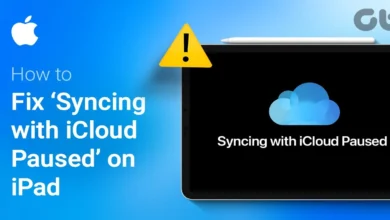Ticketmaster Data Breach: What You Need to Know and How It Affects You

Ticketmaster Data Breach: The Ticketmaster data breach is one of the most significant cybersecurity incidents in recent years, affecting millions of users worldwide. The breach not only raises serious concerns about the safety of personal information but also underscores the increasing vulnerability of online platforms in the face of sophisticated cyber-attacks. In this article, we’ll explore the Ticketmaster data breach in-depth, looking at how it happened, the potential impact on consumers, and what steps you can take to protect yourself.
What Happened in the Ticketmaster Data Breach?
In 2018, Ticketmaster, one of the world’s largest ticket sales and distribution companies, experienced a data breach that left millions of its customers exposed. The breach involved a third-party supplier, Inbenta Technologies, which had been integrated into Ticketmaster’s customer support system. A vulnerability in this third-party software allowed hackers to gain access to sensitive customer data.
According to Ticketmaster, the breach occurred between September 2017 and June 2018, although the company only publicly disclosed the breach in June 2018. During this period, hackers were able to steal personal information from customers who made purchases on the site, including names, email addresses, phone numbers, delivery addresses, payment details, and in some cases, security information.
This type of breach is particularly alarming because it highlights the risks associated with third-party integrations. In an era where businesses rely on numerous external vendors for various services, the breach underscores the importance of ensuring that these third-party vendors maintain strong cybersecurity practices.
The Impact of the Ticketmaster Data Breach
The Ticketmaster data breach affected over 40 million customers globally, making it one of the most significant breaches in recent memory. While not all of these customers were affected in the same way, many were exposed to potential identity theft, fraud, and other forms of cybercrime. The breach also led to widespread concern over the safety of online transactions, especially in industries that handle large volumes of sensitive personal information, such as entertainment and ticketing.
In addition to the financial and personal impacts on individuals, the breach had significant consequences for Ticketmaster’s reputation. Customers who were previously loyal to the brand were left questioning the company’s ability to protect their sensitive information, leading to a loss of trust in the platform. As a result, Ticketmasters faced scrutiny from regulatory authorities and even faced lawsuits from affected customers.
The breach also had implications for the broader ticketing industry, as other companies within the space began rethinking their cybersecurity practices. The breach served as a wake-up call to many businesses that rely on third-party vendors and highlighted the importance of comprehensive security measures to protect consumer data.
How Did the Breach Happen?
To understand how the Ticketmaster data breach unfolded, it’s important to break down the sequence of events. At the heart of the breach was a third-party supplier, Inbenta Technologies, which provided the chatbot and customer support systems used by Ticketmaster. The security vulnerability in the chatbot software allowed hackers to gain access to the data being transmitted between the customer and the support platform.
The breach was a result of a malicious script being inserted into the chatbot software, which allowed the hackers to capture sensitive data, including payment card details. This data was then transmitted back to the hackers, who were able to exploit it for fraudulent purposes. It’s worth noting that while the breach was limited to a third-party vendor, the data captured was still sensitive and included financial details, making it a particularly high-risk breach.
Ticketmaster’s internal security systems were not the primary point of failure in this instance. Rather, the breach highlights the risks associated with relying on third-party vendors without conducting adequate security assessments. While companies like Ticketmaster take steps to protect their networks, vulnerabilities in third-party systems can create entry points for attackers.
What Information Was Stolen?

The Ticketmaster data breach compromised a wide range of personal information, potentially putting customers at risk of identity theft and fraud. The types of information that were accessed during the breach include:
- Full Name: Attackers gained access to customer names, which can be used in social engineering attacks.
- Email Addresses: Email addresses were captured, which could be used for phishing attempts or targeted spam campaigns.
- Phone Numbers: This information could be used to carry out more personalized scams or fraud attempts.
- Home Addresses: Stolen home addresses can lead to fraudulent activities, including the unauthorized use of addresses for billing or shipping.
- Payment Card Details: Perhaps the most concerning piece of stolen data, payment card details were captured, including the card number, expiration date, and security code.
- Security Information: For some customers, the breach included sensitive security information, which could potentially be used to bypass other security measures.
This information, if used maliciously, could lead to a variety of criminal activities, including credit card fraud, identity theft, and unauthorized access to other accounts where customers use similar security details. For this reason, the Ticketmaster breach was so significant, as it exposed such a wide range of sensitive data.
Ticketmaster’s Response to the Data Breach
Once the breach was discovered, Ticketmaster took immediate action to address the situation. The company first issued a public statement, alerting customers to the breach and advising them to monitor their accounts for unusual activity. They also worked with law enforcement agencies and cybersecurity experts to investigate the incident and determine how the breach occurred.
Ticketmaster also took steps to minimize the impact on affected customers. The company offered credit monitoring and identity protection services to those who were potentially impacted by the breach. This service was offered free of charge for a period, helping to mitigate some of the financial and personal risks associated with the breach.
However, Ticketmaster’s response was met with criticism from some customers and privacy advocates, who argued that the company was slow to disclose the breach and that it took too long to notify affected customers. Many felt that Ticketmaster could have done more to prevent the breach from happening in the first place, especially considering the amount of sensitive data that was exposed.
Despite these criticisms, Ticketmaster’s efforts to offer protection and support to affected customers were a step in the right direction, and the company has since worked to improve its security measures.
Legal Consequences of the Data Breach
As with any significant data breach, the Ticketmaster incident led to legal consequences for the company. Affected customers filed class-action lawsuits against Ticketmaster, alleging that the company had failed to adequately protect their personal information. These lawsuits claimed that Ticketmaster had been negligent in its security practices, especially considering the large volume of sensitive data it was handling.
In addition to the lawsuits, regulatory authorities also began investigating the breach. Under the General Data Protection Regulation (GDPR) in the European Union, companies that experience data breaches may face significant fines if they fail to protect customer data adequately. While Ticketmaster faced scrutiny from these regulators, it remains to be seen whether the company will face significant financial penalties as a result of the breach.
The breach also sparked discussions about the need for stronger data protection laws and regulations in the ticketing industry. Many experts argue that companies like Ticketmaster should be required to implement more rigorous cybersecurity practices to protect consumer data, especially when dealing with sensitive payment information.
Protecting Yourself After the Ticketmaster Data Breach
If you were affected by the Ticketmaster data breach, there are several steps you can take to protect yourself from potential identity theft or fraud. These steps can help reduce the risks associated with the breach and provide you with greater peace of mind moving forward.
- Monitor Your Accounts: Regularly check your bank accounts and credit card statements for any suspicious activity. If you notice anything unusual, report it to your bank or financial institution immediately.
- Sign Up for Credit Monitoring: Ticketmaster offers free credit monitoring and identity protection services to affected customers. If you haven’t already done so, take advantage of these services to keep an eye on your credit and any potential fraudulent activity.
- Change Your Passwords: If you used the same password for your Ticketmaster account as you did for other online accounts, it’s a good idea to change your passwords to something more secure. Use a mix of upper and lowercase letters, numbers, and special characters to create strong, unique passwords for each account.
- Watch Out for Phishing Scams: After a major breach, hackers often send phishing emails or text messages pretending to be from the company involved in the breach. Be cautious when receiving unsolicited communications, and avoid clicking on any links or downloading attachments from unknown senders.
- Place Fraud Alerts or Credit Freezes: If you believe your personal information has been compromised, consider placing a fraud alert or credit freeze on your credit file. This will make it harder for fraudsters to open accounts in your name.
Lessons Learned from the Ticketmaster Data Breach
The Ticketmaster data breach serves as a powerful reminder of the importance of cybersecurity in the digital age. While Ticketmaster itself was a victim of the breach, the incident highlights the risks associated with third-party vendors and the need for companies to vet their partners carefully.
Consumers, too, must remain vigilant about the protection of their personal data, especially when making online purchases. Regularly monitoring financial accounts, using strong passwords, and staying aware of potential scams can help individuals protect themselves from the fallout of data breaches like the one involving Ticketmaster.
In the wake of the breach, it is clear that both businesses and consumers must take a proactive approach to safeguarding personal information. As cyber threats continue to evolve, the need for comprehensive security measures, clear communication, and swift responses to data breaches has never been more important.
The Future of Ticketmasters and Cybersecurity
Ticketmaster, like many other companies, has since taken steps to enhance its cybersecurity practices to prevent future breaches. The company has worked to improve its internal security protocols and partnered with cybersecurity experts to strengthen its defenses against future attacks. These efforts are important, but the broader ticketing industry must also continue to prioritize the safety of consumer data.
As we move forward, it’s likely that the Ticketmaster data breach will serve as a case study for how businesses should respond to cybersecurity threats and how consumers can better protect themselves. The breach has led to increased awareness about the importance of robust cybersecurity measures in all industries, especially those handling sensitive payment and personal information.
Ultimately, businesses must recognize that protecting customer data is not just a legal obligation, but also an essential part of maintaining consumer trust. The Ticketmaster data breach may have shaken that trust, but it also provides an opportunity for companies to learn, adapt, and better secure the digital environment for the future.
This detailed exploration of the Ticketmaster data breach provides a comprehensive look at how the breach happened, its impact, the response from the company, and how customers can protect themselves moving forward. By learning from this incident, both consumers and companies can better prepare for the ongoing challenges of cybersecurity in the digital age.







